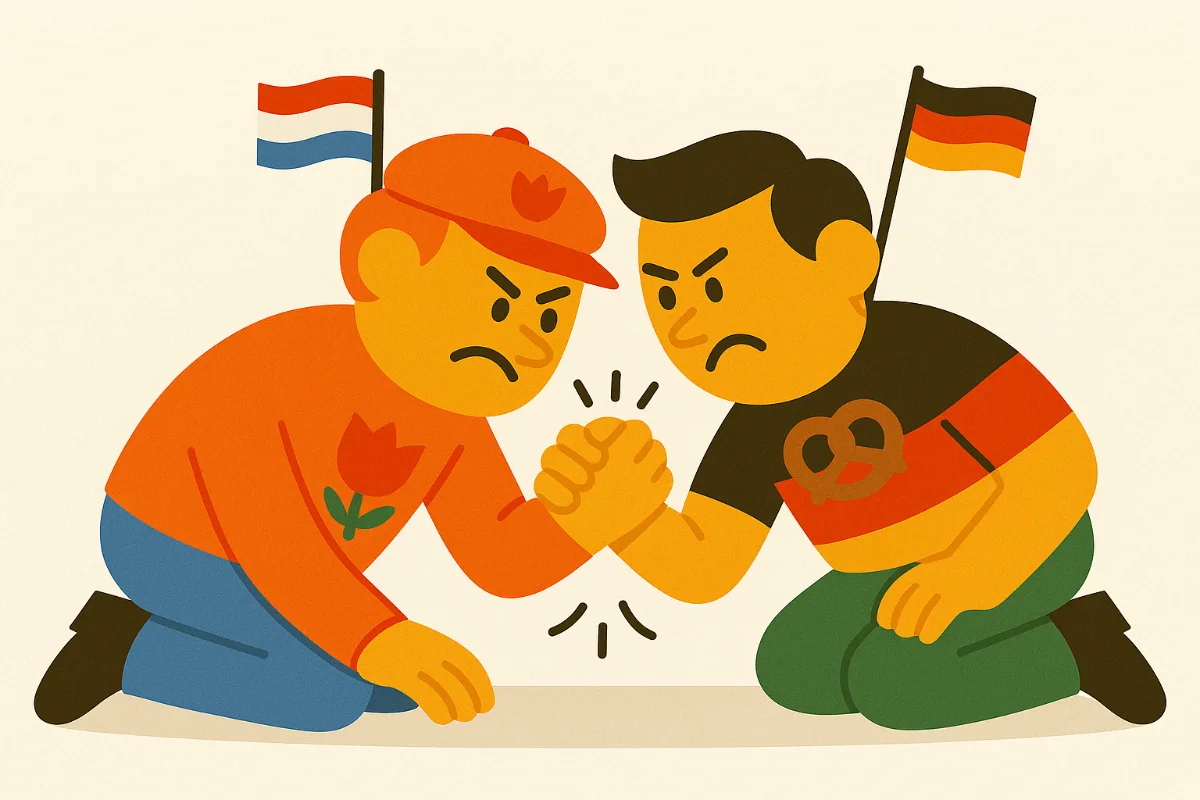If speed and ease are you consideration then you should learn Dutch, it's simpler and shares more with English. But German might be your choice if you want a more widely spoken language.
Why are you learning?
The key factor with deciding to learn Dutch or German is how likely you are to use them? Do you have Dutch or German friends? Do you live in the country? Or do you have plans to move. For most people language learning is about fitting in and communicating with those around them. So let's state the obvious first. If living or plan to live in a Dutch speak country then learn Dutch, and if it's a German speaking country learn German.
Learning as a Hobby
Given this post is about choosing between learning Dutch or German it's more likely that you're interested in language learning as a hobby. Let's get this out of the way first, this is a site about learning Dutch so we obviously think there's a pretty obvious answer there. In case you missed it, it's learn Dutch! But even learning as a hobby still probably means you want to use it.
Number of Speakers
In that respect:
German has approximately 100 million native speakers.
Dutch has approximately 24 million native speakers.
With all other things being equal, you'd pick German on that level because it has four times the probability you will use it.
Ease of Learning
Both Dutch and German are considered easy languages for native English speakers to learn. "Easy" is rather a relative concept though.
Dutch has much easier grammar than German. It also shares a lot more words with english and a lot more similar words. Particularly if you're new to learning languages then this kickstart is a huge boost to your language learning journey and helps improve your confidence. A couple of the sounds are a little difficult to pronounce though but it's worth it for the other benefits.
Culture
A great benefit to language learning is that you can understand the people and the culture better. Would it surprise you, for example, to learn that the Dutch are very formal about appointment times and making appointments? It's slightly less surprising when you realise they have a word for the day before yesterday and the day after tomorrow. Learning a language is also an insight into how people think.
So the question of learning dutch or german may also be a question of which culture you connect with. Which culture draws you? And we're talking more than just tulips and windmills and stroopwafels and cheese. Although who doesn't like cheese?
What do you think about the people? What experiences have you had connecting with them? Because language is about connecting, even if it's just a hobby.
Our View
If these forces don't pull you to German then sure, learn German. If they pull you to Dutch then welcome to the light side and don't forget to have a look around our site of free dutch learning resources! But perhaps you're on the fence? Then our advice is you learn Dutch with the benefit of it being easier, sharing more in common with English, and you can be on your feet and feeling useful faster. That means that the time investment to decide whether it's for you isn't that big so you can just get started and switch later if you feel it is not for you and it won't cost you too much time.


